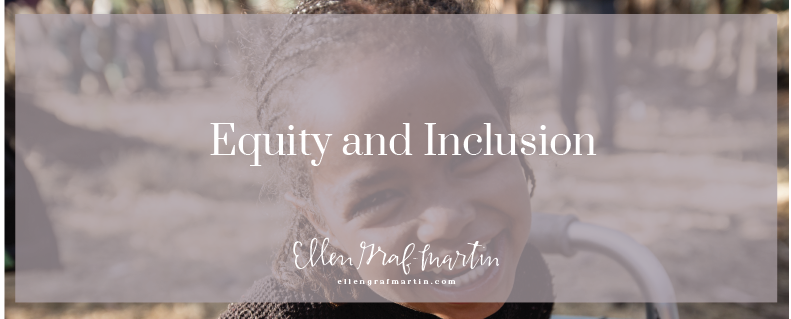
Equity and inclusion.
These words didn’t mean a whole lot to me until a few years ago. I knew them, of course, kind of, but I wasn’t living them – if you know what I mean. I had the privilege of them not being top of mind in my daily life, but I’ve been learning on the fly as the parenting journey I’ve been called to means I need to not only understand them, but advocate for them. These words now have a much deeper meaning.
Growing up, a suburban, Canadian, GenX, kid, inclusion and equity weren’t actually words we ever used when talking about people. They sound a bit intimidating. Like words bankers use and other people don’t, like credits and debits. They’re actually not that tricky. (I still work to figure out debits and credits and balance sheets, because #mathproblems)
These words, inclusion and equity, were something I didn’t know I needed to learn, not just for parenting, but for real-life seeing and understanding others, but I did. We live in a world where a whole lot of people are marginalized because we don’t understand why equity and inclusion matters. We often don’t see value in uniqueness.
And when we don’t understand why inclusion matters? We communicate very clearly that some people don’t matter. (That punches me right in the gut. Guilty as charged.)
I had a vague awareness of a lack of “fairness” when looking through my “old-me eyes”. With my “new-me eyes”, equity and inclusion mean offering basic human dignity and respect to those who are at an inherent disadvantage, for whatever reason, but especially for those who live with some sort of disability. Basic human dignity. That’s a pretty low bar, friend. The Institute for Community Inclusion has a great definition: “Inclusion means that all people, regardless of their abilities, disabilities, or health care needs, have the right to be respected and appreciated as valuable members of their communities…”.
Respected and appreciated as valuable. Friend, that sounds like Jesus to me.
Respect and appreciation? They should be non-negotiables. And not too hard to actually live out.
What I’m learning, is that inclusion and equity might actually just mean making sure that a family member or friend with mobility issues has a comfortable place to sit in my home, so that they can be part of a group conversation, because they have something of value to offer, just by being present. That we recognize neuro-diversity, and we choose to value the creativity and passion that might come with it, rather than dismissing someone as annoying or exhausting. Or we ensure that we have a proper toilet seat, or a bathroom available, so that people receive the dignity of using the facilities without assistance. It means ensuring that we reflect diversity in our friendships, and that we actually talk about others’ differences with respect, instead of pretending they don’t exist, and that we make accommodations so that people are included and know they are valued, just as they are.
I know I need to be better equipped to teach my daughter about inclusion. As she starts to “get” that just like people have different skin colours, lots of kids have brains that work differently, and that other people have bodies and abilities that are different, these are important conversations to have. We had one just this morning, in the car, actually, about being friends with people who have different abilities than us. And guess what? She is totally cool that people are different, but we have to have good, intentional conversations around how to engage respectfully with people who were created differently than us. We started by always saying, when our daughter asked about a difference, by saying “God made that person that way. Isn’t it cool how she (INSERT STRENGTH-BASED ON EXCEPTIONALITY HERE.) Isn’t it interesting how different we all can be?”. We have found that just that simple phrase levels the playing field, and allows us to look at a person’s strengths, rather than focusing on disabilities.
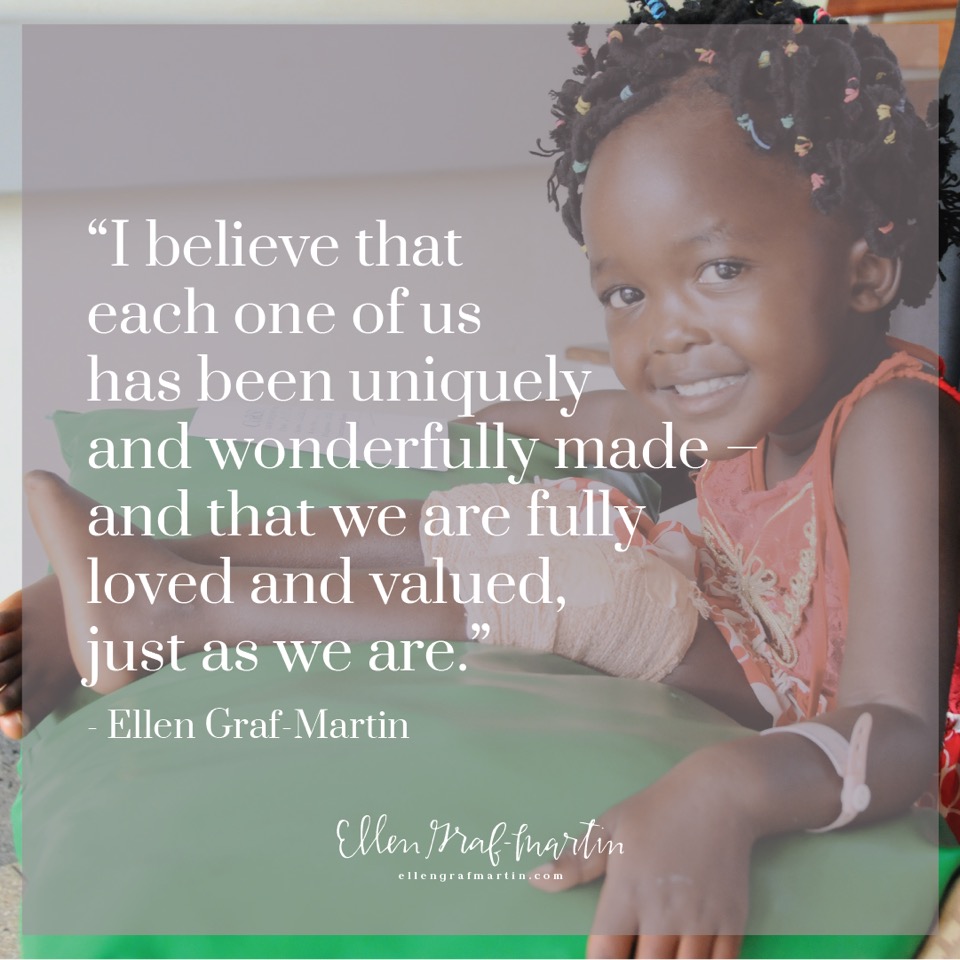 To my family of faith: I want you to know this matters. It really, really matters. Because, at minimum, I believe it is clear that each one of us has been uniquely and wonderfully made in the image of God. Each of us. It’s such a mystery to me how we can be so diverse, but each reflect that image, but isn’t it incredible? If we are kingdom people, that means we serve a King who loves and values people, in all their diversity, and He welcomes them, open-armed. We need to as well.
To my family of faith: I want you to know this matters. It really, really matters. Because, at minimum, I believe it is clear that each one of us has been uniquely and wonderfully made in the image of God. Each of us. It’s such a mystery to me how we can be so diverse, but each reflect that image, but isn’t it incredible? If we are kingdom people, that means we serve a King who loves and values people, in all their diversity, and He welcomes them, open-armed. We need to as well.
As people who follow the same Jesus that gave dignity to the leper, the blind and the paralytic, we should be leading the way on demonstrating that people, regardless of ability or disability, are seen, respected and appreciated as valuable.
While I know we have a long way to go here in Canada, in conversations with Hope and Healing International (formerly cbm, forever Christian), I’ve been learning that kiddos and families living with disabilities in developing nations can easily have a much longer, more difficult road to walk. Or, that they may easily be denied the opportunity to walk it at all. When I was faced with the hard truth that equity and inclusion are not even options for many children with disabilities in places around the world, it hit me deeply. I imagined some of the people I know, who have fought hard for inclusion here, and what their experience might have been if they were born in a developing nation. We know that poverty marginalizes children all over the world, preventing them from receiving basic human dignity, and things like education and nutrition. But add disability to poverty? It can mean that basic community inclusion – things like being included in a feeding program – and equity are beyond possibility. I’m grateful for the work of organizations like Hope and Healing International, as they advocate for and provide hope for people living with disabilities. So grateful.
My personal experience here in Canada is that is a privilege to be able to have the resources, education and ability to advocate and locate inclusion supports for education, or community involvement (like our current Graf-Martin Family Potty Project). And we won’t have equity, providing the accommodations – both simple and complex – that a person uniquely deserves to receive dignity and inclusion, until we choose to value people of all abilities.
It’s a big thing, isn’t it? So, where do we start? Why not start at home? Those car-ride conversations, and actually being prepared for them, or initiating them as parents. Another good place, my dear church-going family, is at your place of worship. I’m not going to sugar-coat it: church can be a very, very difficult place for families with special needs, and not terribly inclusive – for a number of reasons (including relying on an army of volunteers to just make a Sunday morning service happen). I get it. But, we (including myself in this!) can do better. I’m so, so grateful for the faithful volunteers who make it possible for our family to attend church.
In connecting with Hope and Healing, they offered up some tips on how to start talking with our children about inclusion, at home or at church. You can download them for free and start using them today. (Woohoo! See, it’s easy as that to get started.) These would also be fabulous for a Christian school classroom. And what all ten tips lead back to, for me, is how valued we each are. Just as we are. I’ve printed these out so that our family can use these as dinner-time conversation starters, one by one. It’s a fantastic way to start helping your kids – and yourself – understand why inclusion matters. It’s not just a nice idea, it’s actually a foundation of faith, found all the way back in the book of Genesis (See tip #1).
Equity and inclusion. They’re words that mean a whole lot to me now. And I’m realizing, even in reading these tips, that they matter to the One who made us. Lord, give us Your eyes to see the people around us. Friend, let’s start today.




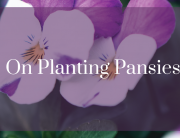
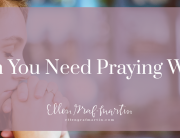
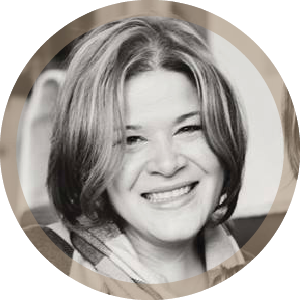

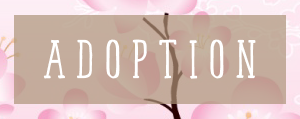




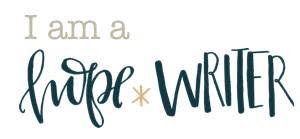
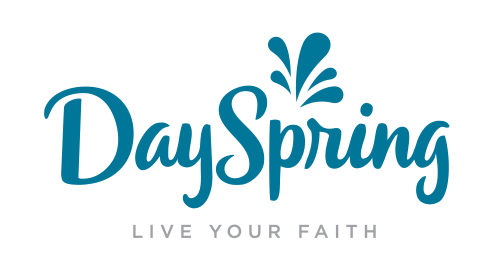
I love this, Ellen. Each one is precious in His sight. Thank you for sharing.